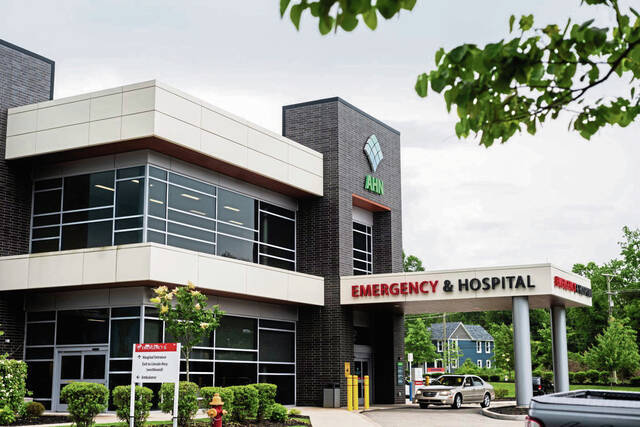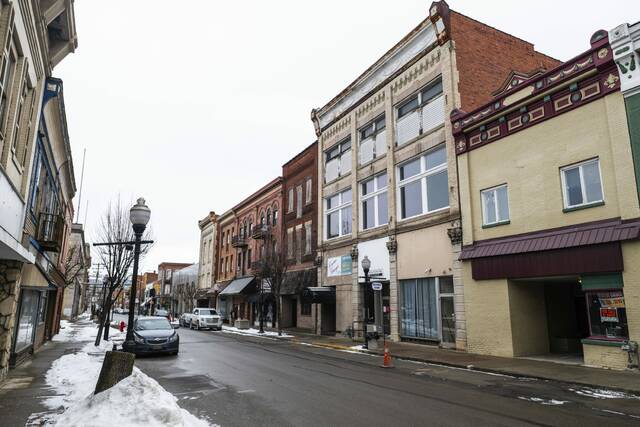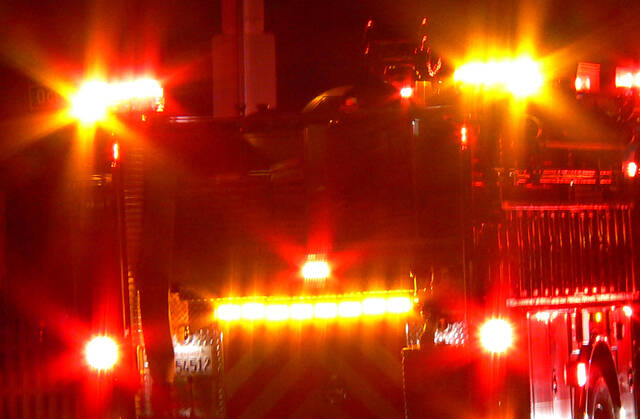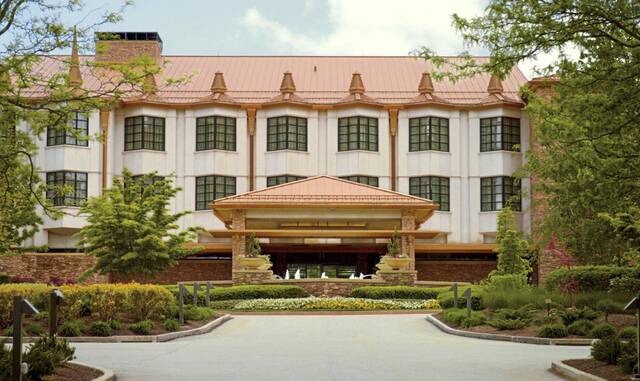Some Western Pennsylvania hospitals could see an increase in uninsured patients and corresponding drop in reimbursements from Medicaid if the U.S. House-approved $723 billion in funding cuts to states is enacted, health advocates and state officials say.
Ultimately, that could cause a reduction in services, officials said.
“They’re (hospitals) going to have to deal with a large number of people who are sick, need care and show up without insurance” if Republicans in the U.S. Senate pass a budget with the House cuts intact, said Patrick Keenan, policy director for the Pennsylvania Health Access Network. The Philadelphia organization produced a report on the impact to hospitals if Medicaid funding is reduced.
Half of Pennsylvania’s 65 hospitals serving rural communities operate at a deficit and rely significantly on Medicaid to cover the cost of providing care, said the state Department of Human Services, which oversees the Medicaid program for Pennsylvania.
“They (rural hospitals) will feel the brunt of this. This will be another challenge for them to address. We already have vulnerable (rural) hospitals,” said Lisa Davis, director of the Pennsylvania State Office of Rural Health, based at Penn State.
An estimated 300,000 Pennsylvanians could lose their insurance if the cuts to Medicaid funding are approved, according to a state report. Pennsylvania has about 2.9 million residents covered under the government’s insurance program.
The objective is never to eliminate services from people who qualify or need them, said Erica Clayton Wright, a spokeswoman for state state Sen. President Pro Tempore Kim Ward, R-Hempfield.
Republicans in Congress and President Donald Trump have said repeatedly that no one currently insured by Medicaid will lose their coverage. Republicans have said they would save money by eliminating waste, fraud and abuse and by removing illegal immigrants from the Medicaid rolls. The Department of Health and Human Services estimated that there was a combined $100 billion in improper payments in the Medicare and Medicaid programs for the fiscal year that ended by October 2023.
If people lose their Medicaid insurance, they are likely to go to emergency departments for treatment, and hospitals would not receive any money for the services provided, said Kenneth DeFurio, president and chief executive of Independence Health System, which was formed by the merger of health systems in Butler and Westmoreland counties.
“It would be very hurtful to us. We need to get paid for the services we provide,” DeFurio said.
The Republican bill also proposes other federal cuts, which will further destabilize the state’s health care infrastructure and threaten to close hospitals, especially in rural communities, according to the state Human Services Department.
Communities across the state could see local hospitals close, making it harder for all residents to get the care they need, said U.S. Sen. John Fetterman, D-Braddock, who said he is opposed to the Republican cuts to Medicaid.
“It’s impossible to overstate how devastating these Medicaid cuts would be for Pennsylvania. It’s about life or death,” Fetterman said, noting that the bill would eliminate coverage and cost health care providers and hospital staff their jobs.
A spokesperson for U.S. Sen. Dave McCormick, R-Pittsburgh, could not be reached for comment.
Hospitals facing impact
Forty-seven general acute care hospitals out of about 155 in the state would face a moderate to significant risk of closing or reducing services to patients because of the proposed changes not only in funding, but also in the eligibility requirements for low-income people to retain their Medicaid coverage, according to the health access report.
Among the hospitals in the region that the report found rely upon current levels of Medicaid funding are five UPMC hospitals: Magee Womens and Mercy in Pittsburgh, McKeesport, Jameson in New Castle and Greene in Waynesburg. Allegheny Health Network’s Hempfield Neighborhood Hospital is on the list, as well as Heritage Valley Kennedy, WVU Medicine Uniontown and Penn Highlands Connellsville. Other UPMC facilities on the list were Altoona and Hamot in Erie.
Pittsburgh-based health giant UPMC questioned the accuracy of the report that the health access network issued this week.
“UPMC operates as a system and does not file separate financial and operating statements for each of our hospitals, making this analysis inherently flawed and resulting in misleading and inaccurate conclusions. Our hospitals benefit from the collective strength, resources and expertise of UPMC, one of the nation’s premier integrated health systems,” the health system said.
A spokesman for Allegheny Health Network declined to comment on AHN’s Hempfield Neighborhood Hospital appearing on the list.
To reach its conclusion about the viability of hospitals under the proposed cuts, Pennsylvania Health Access Network used eight criteria for evaluating the impact, including whether Medicaid is the hospital’s top payer, whether its Medicaid reimbursement is greater than 20% of the hospital’s patient revenue and whether the charity care it provides is greater than 4% of its total payers. Data was culled from from the state Department of Health, the Centers for Medicare and Medicaid Services and the National Association of State Health Policies, Keenan said.
Unknown funding loss
The big unknown about the impact on hospitals in the state remains just how much Medicaid funding Pennsylvania would lose under the proposed budget cuts.
Pennsylvania in the current fiscal year funneled more than $14 billion into its Medicaid program, which allowed it to match more than $30 billion in federal funds, according to the state report. If Medicaid funding is cut, Pennsylvania and other states would have to compensate for the loss by tapping into state revenue, making reductions in eligibility benefits or cutting funding to providers, the state report said.
The General Assembly, which is in the midst of its own budget process, will not know the fate of the proposed Medicaid cuts before the June 30 deadline for passing a budget.
Gov. Josh Shapiro’s budget also does not account for the Biden-era expansion of Medicaid, which creates a nearly $1 billion gap in the state budget, said Wright, Ward’s spokeswoman.
State Sen. Majority Leader Joe Pittman, R-Indiana, could not be reached for comment on what the legislators and state government would do if the cuts are kept in the final federal budget.
“They (the state) will not be able to absorb all of that,” Davis said.
Joe Napsha is a TribLive staff writer. He can be reached at jnapsha@triblive.com. Tom Fontaine is director of politics and editorial standards at TribLive. He can be reached at tfontaine@triblive.com.








